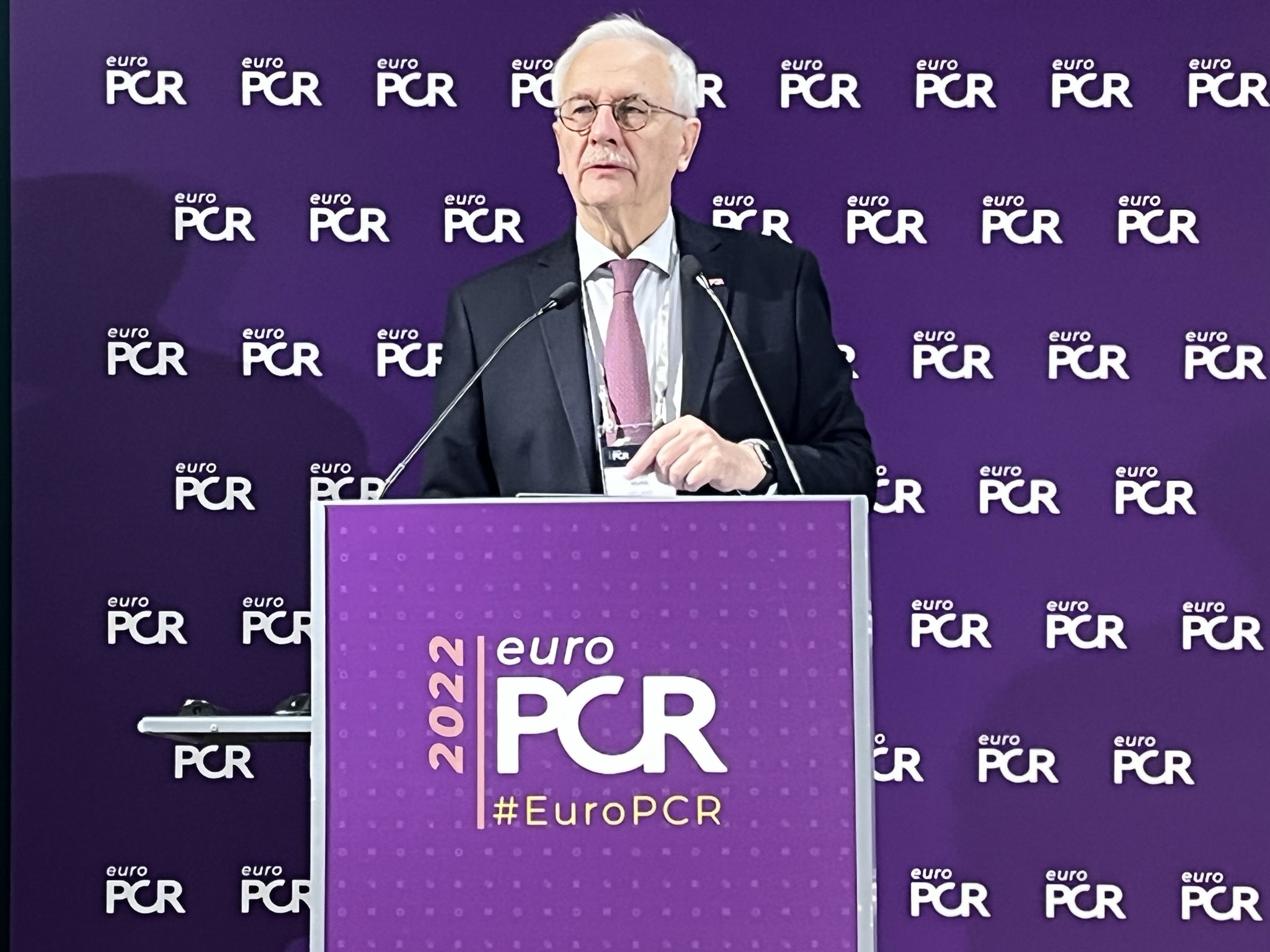
Patients in England with ST-elevation myocardial infarction (STEMI) had an average loss of 1.86 years of survival during the first month of lockdown, compared with before the lockdown, with a corresponding loss of quality of life.
This is according to analysis presented at EuroPCR 2022 (17–20 May, Paris, France), which came from the We CARE initiative, a joint campaign launched by PCR and Stent‒Save a Life! aimed at maintaining access to cardiac care during the pandemic.
The We CARE campaign has supported a series of national studies in Spain, Sweden, UK and USA, looking at the long-term health outcomes and cost for STEMIs occurring during the pandemic. Findings from the first of these analyses, focusing on the effect of the first COVID-19 lockdown in England in March‒April 2020 was presented at EuroPCR 2022 by Mamas Mamas (Keele University, Newcastle-Under-Lyme, UK), and compared STEMI outcomes during the lockdown with an equivalent STEMI population prior to the pandemic.
Mamas had previously reported a significant decline in percutaneous coronary intervention (PCI) procedures in England due to the lockdown in the first wave of the COVID-19 pandemic in a paper published in Circulation: Cardiovascular Interventions.
The results of the latest study were previewed during a press conference at EuroPCR 2022 by PCR chairman William Wijns (Lambe Institute for Translational Medicine, Galway, Ireland), who detailed the stark impact of the pandemic on STEMI care.
He noted that that through the advocacy programme—We CARE—the interventional cardiology community “spent a lot of time trying to convince authorities, [and] regulatory bodies, that if you implement new treatments there is going to be an impact on patient outcomes”. The loss of care for many STEMI patients afforded the opportunity for the “unfortunate experiment” to chart the impact the removal of care is likely to have on outcomes and overall societal costs, he remarked.
To do this, researchers developed a model to analyse the societal impact of the lockdown in terms of both outcomes and cost.
“We did this because, as we all know, there has been a fear of catching COVID, therefore patients would not be admitted or did not want to be admitted,” Wijns explained. “Also, some authorities in many countries have issued stay at home messages, and of course the hospitals have redirected and reorganised completely their care pathways to give priority on COVID and thereby cancer treatment, cardiovascular treatment was postponed, delayed or even did not take place. The most acute part of that was even the reduction in treatment of patients with STEMI.”
The resulting impact, Wijns said, is a larger pool of untreated patients, due to slower access to the interventions of reperfusion—either pharmacological or through PCI—and poor patient outcomes.
Analysing the data uncovered through the study, Wijns revealed that having a STEMI during the lockdown period caused, on average, a loss of nearly two years of life for each patient, compared to having a STEMI prior to the lockdown.
“This difference is driven primarily by the reduced hospitalisation rate at the start of the lockdown period, but also to a smaller extent over time, to a higher mortality rate, and that is because untreated patients suffer from more complications, they more often move into heart failure, they more often have severe arrhythmias, and the morbidity it has caused propagates over time,” Wijns said.
Researchers also saw a significant increase in mortality during the lockdown period that propagates over the long-term and this translates into massive costs, he added, on top of an estimated £26 million societal cost.
“STEMI admissions did recover quickly, but we had a similar removal of care period for the second wave,” Wijns added, noting that the analysis will be extended to other countries and other disease areas.













